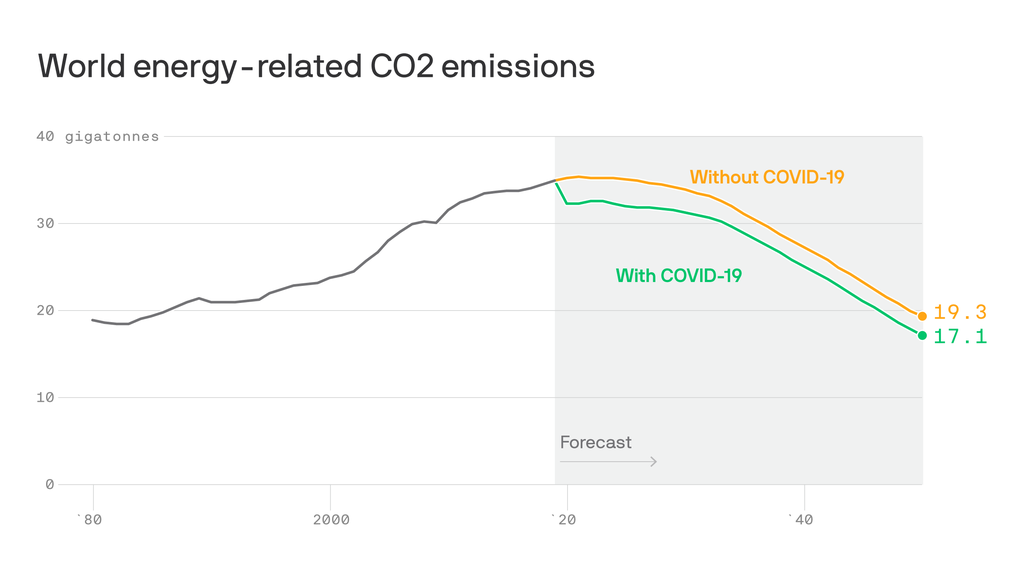CO2 Emissions May Have Peaked, But That's Not Enoughhttps://www.axios.com/co2-emissions-peaked-climate-change-paris-deal-8a447d76-5678-4b4b-84fc-4dcabfd6b24a.html
More analysts are making the case that COVID-19 could be an inflection point for oil use and carbon emissions, but it's hardly one that puts the world on a sustainable ecological path.
Driving the news: The risk advisory firm DNV GL, citing the pandemic's long-term effects on energy consumption, projects in a new analysis that global CO2 emissions "most likely" peaked in 2019.
- And, per Reuters, the firm also argues that the pandemic has accelerated the global oil demand peak by several years, which they now believe also occurred in 2019.
- Separately, Bloomberg reports on a new Citigroup group analysis which finds: "Oil product demand growth will falter significantly, change its contours and never return to pre-COVID-19 rates of growth."
Why it matters: These new reports are the latest to take stock of the pandemic's unprecedented shock to the energy system and the lasting effects.
But it's also a reminder that the demand reduction and carbon emissions decline that's happening for tragic reasons is not even close to enough to hold warming significantly in check.
Threat level: "Even with peak emissions behind us, and flat energy demand through to 2050, the energy transition we forecast is still nowhere near fast enough to deliver the Paris ambition of keeping global warming well below 2°C above pre-industrial levels," the DNV GL analysis states.
"To reach 1.5-degree target, we would need to repeat the decline we’re experiencing in 2020 every year from now on."
The bottom line: "
t's always important to emphasize that peaking emissions does not stop the world from continuing to warm," Hausfather, who is affiliated with the Breakthrough Institute and the research group Berkeley Earth, tells me via email.
"CO2 accumulates in the atmosphere, so to stop warming we need to get emissions down to net-zero. Peaking is just the first (and easiest) step on the long road to zero emissions," he said.
... and then there's deforestation and positive feedback loops.
